 W
WJohn Adams Jr. was an American statesman, attorney, diplomat, writer, and Founding Father who served as the second president of the United States from 1797 to 1801. Before his presidency, he was a leader of the American Revolution that achieved independence from Great Britain, and he served as the first vice president of the United States. Adams was a dedicated diarist and regularly corresponded with many important figures in early American history, including his wife and adviser Abigail Adams and Thomas Jefferson.
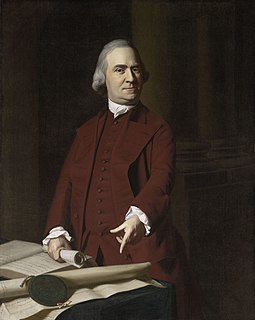 W
WSamuel Adams was an American statesman, political philosopher, and one of the Founding Fathers of the United States. He was a politician in colonial Massachusetts, a leader of the movement that became the American Revolution, and one of the architects of the principles of American republicanism that shaped the political culture of the United States. He was a second cousin to his fellow Founding Father, President John Adams.
 W
WJosiah Bartlett was an American physician and statesman, delegate to the Continental Congress for New Hampshire, and signatory of the Declaration of Independence. He served as governor of New Hampshire and chief justice of the New Hampshire Superior Court of Judicature.
 W
WCarter Braxton was a signer of the United States Declaration of Independence, as well as a merchant, planter, and Virginia politician. A grandson of Robert "King" Carter, one of the wealthiest and most powerful landowners and slaveholders in the Old Dominion, Braxton was active in Virginia's legislature for more than 25 years, generally allied with Landon Carter, Benjamin Harrison V, Edmund Pendleton and other conservative planters.
 W
WCharles Carroll, known as Charles Carroll of Carrollton or Charles Carroll III, was an Irish-American politician, planter, slaveholder, and signatory of the Declaration of Independence. He was the last surviving person to sign the Declaration of Independence, dying 56 years after signing the document, in addition to being the only Catholic signatory.
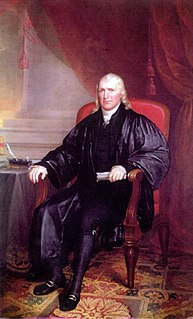 W
WSamuel Chase was an Associate Justice of the United States Supreme Court and a signatory to the United States Declaration of Independence as a representative of Maryland. He was impeached by the House of Representatives on grounds of letting his partisan leanings affect his court decisions but was acquitted by the Senate and remained in office.
 W
WAbraham Clark was an American politician, slave owner, and Revolutionary War figure. He was a delegate for New Jersey to the Continental Congress where he signed the Declaration of Independence and later served in the United States House of Representatives in both the Second and Third United States Congress, from March 4, 1791, until his death in 1794.
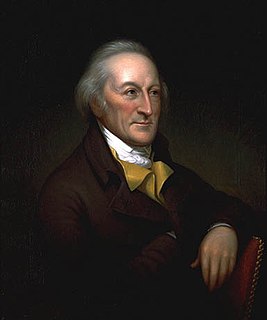 W
WGeorge Clymer was an American politician and Founding Father of the United States, signing both the Declaration of Independence and the U.S. Constitution. Clymer was one of 34 Signers of the Declaration of Independence that did not own slaves. He was the first president of the Pennsylvania Society for the Abolition of Slavery. He was one of the first Patriots to advocate complete independence from Britain. He attended the Continental Congress and served in political office until the end of his life.
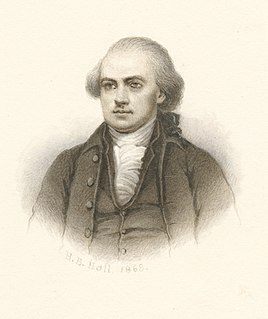 W
WWilliam Ellery was a signer of the United States Declaration of Independence as a representative of Rhode Island. In 1764, the Baptists consulted with Ellery and Congregationalist Reverend Ezra Stiles on writing a charter for the college that became Brown University. Ellery and Stiles attempted to give control of the college to the Congregationalists, but the Baptists withdrew the petition until it was rewritten to assure Baptist control. Neither Ellery nor Stiles accepted appointment to the reserved Congregationalist seats on the board of trustees.
 W
WWilliam Floyd was an American politician from New York, delegate to the Continental Congress, and a signer of the Continental Association and the United States Declaration of Independence. He is one of the Founding Fathers of the United States.
 W
WBenjamin Franklin was an American polymath who was active as a writer, scientist, inventor, statesman, diplomat, printer, publisher and political philosopher. Among the leading intellectuals of his time, Franklin was one of the Founding Fathers of the United States and the first United States Postmaster General. As a scientist, he was a major figure in the American Enlightenment and the history of physics for his discoveries and theories regarding electricity. As an inventor, he is known for the lightning rod, bifocals, and the Franklin stove, among other inventions. He founded many civic organizations, including the Library Company, Philadelphia's first fire department, and the University of Pennsylvania. Franklin earned the title of "The First American" for his early and indefatigable campaigning for colonial unity, initially as an author and spokesman in London for several colonies. As the first United States Ambassador to France, he exemplified the emerging American nation. Franklin was foundational in defining the American ethos as a marriage of the practical values of thrift, hard work, education, community spirit, self-governing institutions, and opposition to authoritarianism both political and religious, with the scientific and tolerant values of the Enlightenment. In the words of historian Henry Steele Commager, "In Franklin could be merged the virtues of Puritanism without its defects, the illumination of the Enlightenment without its heat." To Walter Isaacson, this makes Franklin "the most accomplished American of his age and the most influential in inventing the type of society America would become."
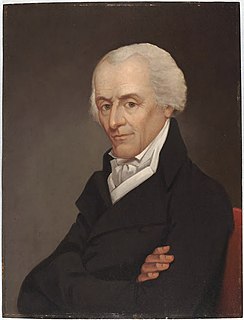 W
WElbridge Gerry was an American politician and diplomat. As a Democratic-Republican he served as the fifth Vice President of the United States under President James Madison from March 1813 until his death in November 1814. The political practice of gerrymandering is named after him. He was the second American vice president to die in office.
 W
WButton Gwinnett was an English-born American Founding Father who, as a representative of Georgia to the Continental Congress, was one of the signatories on the United States Declaration of Independence. He was also, briefly, the provisional president of Georgia in 1777, and Gwinnett County was named for him. Gwinnett was killed in a duel by rival Lachlan McIntosh following a dispute after a failed invasion of East Florida.
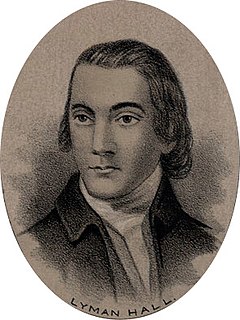 W
WLyman Hall, physician, clergyman, and statesman, was a signer of the United States Declaration of Independence as a representative of Georgia. Hall County is named after him. He was one of four physicians to sign the Declaration of Independence, along with Benjamin Rush, Josiah Bartlett, and Matthew Thornton.
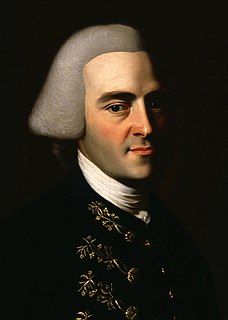 W
WJohn Hancock was an American merchant, statesman, and prominent Patriot of the American Revolution. He served as president of the Second Continental Congress and was the first and third Governor of the Commonwealth of Massachusetts. He is remembered for his large and stylish signature on the United States Declaration of Independence, so much so that the term John Hancock or Hancock has become a nickname in the United States for one's signature. He used his influence to ensure that Massachusetts ratified the United States Constitution in 1788.
 W
WBenjamin Harrison V was an American planter, merchant and politician who served as a legislator in colonial Virginia, following a precedent of public service established by his namesakes. He signed both the Continental Association and the United States Declaration of Independence and is known as one of the Founding Fathers of the United States. He served as Virginia's governor from 1781 to 1784.
 W
WJohn Hart was a public official and politician in colonial New Jersey who served as a delegate to the Continental Congress and signed the Declaration of Independence. He is thus considered one of the Founding Fathers of the United States.
 W
WJoseph Hewes was a native of Princeton, New Jersey, where he was born in 1730. Hewes's parents were members of the Society of Friends, commonly known as Quakers. On his mother's side, Joseph Hewes was a 3rd generation resident of New Jersey. He was the 4th generation of the Hewes family to live in New Jersey. Hewes attended Princeton but there is no evidence that he actually graduated. What is known is that he became an apprentice of a merchant and in fact became a very successful merchant. After finishing his apprenticeship he earned himself a good name and a strong reputation, which would serve him well in becoming one of the most famous signers of the Declaration of Independence for North Carolina, along with William Hooper and John Penn. Hewes moved to Edenton, North Carolina at the age of 30 and won over the people of the colony with his charm and honorable businesslike character. Hewes was elected to the North Carolina legislature in 1763, only three years after he moved to the colony. After being re-elected numerous times in the legislature, Hewes was now focused on a new and more ambitious job as a continental congressman.
 W
WThomas Heyward Jr. was a signer of the United States Declaration of Independence and of the Articles of Confederation as a delegate of South Carolina.
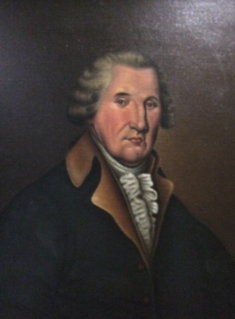 W
WWilliam Hooper was an American lawyer, politician, and a member of the Continental Congress representing North Carolina from 1774 through 1777. Hooper was also a signer of the United States Declaration of Independence, along with fellow North Carolinians Joseph Hewes and John Penn.
 W
WStephen Hopkins was a governor of the Colony of Rhode Island and Providence Plantations, a Chief Justice of the Rhode Island Supreme Court, and a signer of the Declaration of Independence. He was from a prominent Rhode Island family, the grandson of William Hopkins who served the colony for 40 years as Deputy, Assistant, Speaker of the House of Deputies, and Major. His great grandfather Thomas Hopkins was an original settler of Providence Plantation, sailing from England in 1635 with his cousin Benedict Arnold who became the first governor of the Rhode Island colony under the Royal Charter of 1663.
 W
WFrancis Hopkinson was an American judge, author and composer. He designed Continental paper money and two early versions of the American flag, one for the United States and one for the United States Navy. He was also one of the signers of the Declaration of Independence in July 1776, as a delegate from New Jersey. He served in various roles in the early United States government including as a member of the Second Continental Congress and as a member of the Navy Board. He later became the first federal judge of the Eastern District Court of Pennsylvania on September 30, 1789.
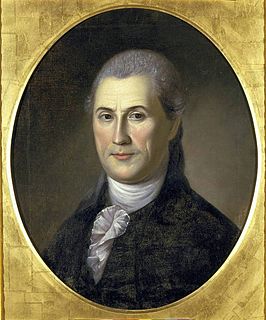 W
WSamuel Huntington was a jurist, statesman, and Patriot in the American Revolution from Connecticut. As a delegate to the Continental Congress, he signed the Declaration of Independence and the Articles of Confederation. He also served as President of the Continental Congress from 1779 to 1781, President of the United States in Congress Assembled in 1781, chief justice of the Connecticut Supreme Court from 1784 to 1785, and the 18th Governor of Connecticut from 1786 until his death. He was the first United States Governor to have died while in office.
 W
WThomas Jefferson was an American statesman, diplomat, lawyer, architect, musician, philosopher, and Founding Father who served as the third president of the United States from 1801 to 1809. He had previously served as the second vice president of the United States under John Adams between 1797 and 1801, and as the first United States secretary of state under George Washington between 1790 to 1793. The principal author of the Declaration of Independence, Jefferson was a proponent of democracy, republicanism, and individual rights for certain categories of people, motivating American colonists to break from the Kingdom of Great Britain and form a new nation; he produced formative documents and decisions at both the state and national levels.
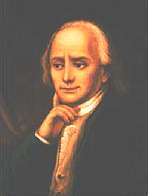 W
WFrancis Lightfoot Lee was a member of the House of Burgesses in the Colony of Virginia. As an active protester regarding issues such as the Stamp Act of 1765, Lee helped move the colony in the direction of independence from Britain. Lee was a delegate to the Virginia Conventions and the Continental Congress. He was a signer of the Articles of Confederation and the Declaration of Independence as a representative of Virginia. In addition to his career in politics, Lee owned a tobacco plantation as well as many slaves. He was a member of the Lee family, a prominent Virginian dynasty whose members accumulated their wealth and power through plantation slavery.
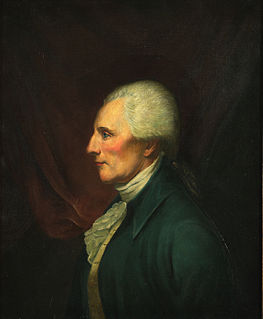 W
WRichard Henry Lee was an American statesman and Founding Father from Virginia, best known for the June 1776 Lee Resolution, the motion in the Second Continental Congress calling for the colonies' independence from Great Britain leading to the United States Declaration of Independence, which he signed. He also served a one-year term as the President of the Continental Congress, was a signatory to the Articles of Confederation, and was a United States Senator from Virginia from 1789 to 1792, serving during part of that time as the second President pro tempore of the upper house.
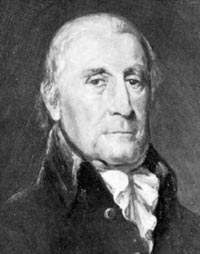 W
WFrancis Lewis was a Welsh merchant and signer of the United States Declaration of Independence as a representative of New York.
 W
WPhilip Livingston was an American merchant and statesman from New York City. He represented New York at the October 1774 First Continental Congress, where he favored imposing economic sanctions upon Great Britain as a way of pressuring the British Parliament to repeal the Intolerable Acts. He was also a delegate to the Second Continental Congress from 1775 to 1778, and signed the Declaration of Independence.
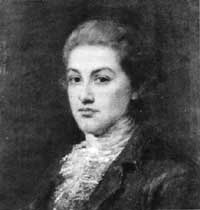 W
WThomas Lynch Jr. was a signer of the United States Declaration of Independence as a representative of South Carolina; his father was unable to sign the Declaration of Independence because of illness.
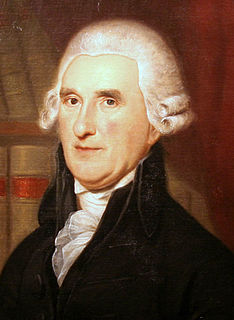 W
WThomas McKean was an American lawyer and politician from New Castle, in New Castle County, Delaware and Philadelphia. During the American Revolution he was a delegate to the Continental Congress, where he signed the United States Declaration of Independence and the Articles of Confederation. McKean served as a President of Congress. He was at various times a member of the Federalist and Democratic-Republican parties. McKean served as President of Delaware, Chief Justice of Pennsylvania, and Governor of Pennsylvania. He is also known for holding copious public positions.
 W
WArthur Middleton, of Charleston, South Carolina, was a signatory of the United States Declaration of Independence.
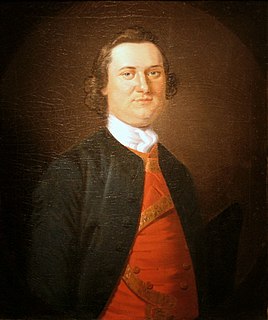 W
WLewis Morris was an American landowner and developer from Morrisania, New York, presently part of Bronx County. He signed the U.S. Declaration of Independence as a delegate to the Continental Congress from New York.
 W
WRobert Morris, Jr. was an English-born merchant and a Founding Father of the United States. He served as a member of the Pennsylvania legislature, the Second Continental Congress, and the United States Senate, and he was a signer of the Declaration of Independence, the Articles of Confederation, and the United States Constitution. From 1781 to 1784, he served as the Superintendent of Finance of the United States, becoming known as the "Financier of the Revolution." Along with Alexander Hamilton and Albert Gallatin, he is widely regarded as one of the founders of the financial system of the United States.
 W
WJohn Morton was a farmer, surveyor, and jurist from the Province of Pennsylvania and a Founding Father of the United States. As a delegate to the Continental Congress during the American Revolution, he was a signatory to the Continental Association and the United States Declaration of Independence. Morton provided the swing vote that allowed Pennsylvania to vote in favor of the United States Declaration of Independence. Morton chaired the committee that wrote the Articles of Confederation.
 W
WThomas Nelson Jr. was an American soldier and statesman from Yorktown, Virginia, and is considered one of the U.S. Founding Fathers. In addition to serving in the Virginia General Assembly for many terms, he twice represented Virginia in the Continental Congress. Fellow Virginia legislators elected him to serve as the commonwealth's governor in 1781.
 W
WWilliam Paca was a signatory to the United States Declaration of Independence from Maryland, a delegate to the First Continental Congress and the Second Continental Congress from Maryland, Governor of Maryland and a United States District Judge of the United States District Court for the District of Maryland.
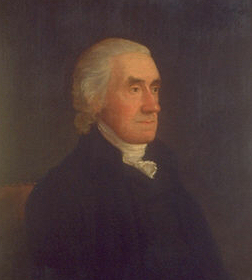 W
WRobert Treat Paine was an American lawyer and politician, best known as a signer of the Declaration of Independence as a representative of Massachusetts. He served as the state's first attorney general, and served as an associate justice of the Massachusetts Supreme Judicial Court, the state's highest court. Paine was also a founding member of the Pennsylvania Abolition Society and had always opposed slavery.
 W
WJohn Penn was a signer of both the United States Declaration of Independence and the Articles of Confederation as a delegate of North Carolina.
 W
WGeorge Read was a politician from New Castle in New Castle County, Delaware. He was a signer of the Declaration of Independence, a Continental Congressman from Delaware, a delegate to the U.S. Constitutional Convention of 1787, President of Delaware, and a member of the Federalist Party, who served as U.S. Senator from Delaware and Chief Justice of Delaware.
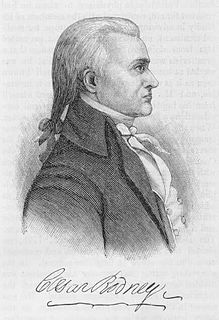 W
WCaesar Rodney was an American Founding Father, lawyer, and politician from St. Jones Neck in Dover Hundred, Kent County, Delaware. He was an officer of the Delaware militia during the French and Indian War and the American Revolution, a Continental Congressman from Delaware, a signer of the Declaration of Independence, and President of Delaware during most of the American Revolution.
 W
WGeorge Ross Jr was a signer of the Continental Association and the United States Declaration of Independence as a representative of Pennsylvania. He was also the uncle of the man who married Betsy Griscom in 1773, giving her her famous married name: Betsy Ross. In 1952, he, George Washington, and Robert Morris appeared on a three-cent stamp commemorating Betsy Ross.
 W
WBenjamin Rush was a signer of the United States Declaration of Independence and a civic leader in Philadelphia, where he was a physician, politician, social reformer, humanitarian, and educator and the founder of Dickinson College. Rush attended the Continental Congress. His later self-description there was: "He aimed right." He served as Surgeon General of the Continental Army and became a professor of chemistry, medical theory, and clinical practice at the University of Pennsylvania.
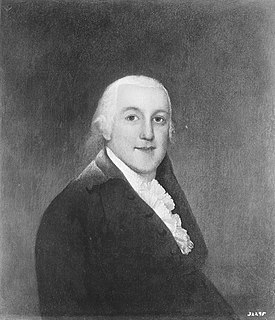 W
WEdward Rutledge was an American politician and youngest signatory of the United States Declaration of Independence. He later served as the 39th Governor of South Carolina.
 W
WRoger Sherman was an early American statesman and lawyer, as well as a Founding Father of the United States. He is the only person to have signed all four great state papers of the United States: the Continental Association, the Declaration of Independence, the Articles of Confederation, and the Constitution.
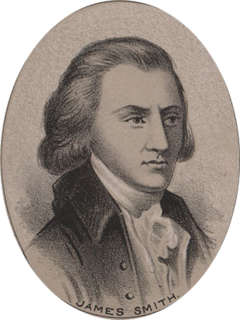 W
WJames Smith, was an Irish/American lawyer and a signer to the United States Declaration of Independence as a representative of Pennsylvania.
 W
WRichard Stockton was an American lawyer, jurist, legislator, and a signer of the Declaration of Independence.
 W
WThomas Stone was an American planter, politician, and lawyer who signed the United States Declaration of Independence as a delegate for Maryland. He later worked on the committee that formed the Articles of Confederation in 1777. He acted as president of Congress for a short time in 1784. Stone was a member of the Maryland Senate from 1777 to 1780 and again from 1781 to 1787.
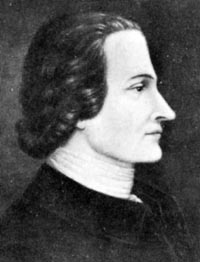 W
WGeorge Taylor was a Colonial ironmaster and a signer of the United States Declaration of Independence as a representative of Pennsylvania. Today, his former home, the George Taylor House in Catasauqua, Lehigh County, Pennsylvania, is a National Historic Landmark owned by the Borough of Catasauqua.
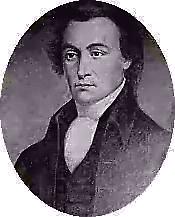 W
WMatthew Thornton was an Irish-born signer of the United States Declaration of Independence as a representative of New Hampshire.
 W
WGeorge Walton signed the United States Declaration of Independence as a representative of Georgia and also served as the second Chief Executive of Georgia.
 W
WWilliam Whipple Jr. was a signatory of the United States Declaration of Independence as a representative of New Hampshire and a member of the Continental Congress from 1776 through 1779. He worked as both a ship's captain and a merchant, and he studied in college to become a judge. He died of heart complications in 1785, aged 55.
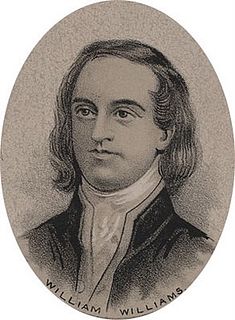 W
WWilliam Williams was a merchant, and a delegate for Connecticut to the Continental Congress in 1776, and a signatory of the Declaration of Independence.
 W
WJames Wilson was an American statesman, politician, legal scholar, and Founding Father who served as an Associate Justice of the United States Supreme Court from 1789 to 1798. He was elected twice to the Continental Congress, was a signatory of the United States Declaration of Independence, and was a major force in drafting the United States Constitution. A leading legal theorist, he was one of the six original justices appointed by George Washington to the Supreme Court of the United States. In his capacity as first Professor of Law at the University of Pennsylvania, he taught the first course on the new Constitution to President Washington and his cabinet in 1789 and 1790.
 W
WJohn Witherspoon was a Scottish American Presbyterian minister, slaveholder, and Founding Father of the United States. Witherspoon embraced the concepts of Scottish common sense realism, and while president of the College of New Jersey became an influential figure in the development of the United States' national character. Politically active, Witherspoon was a delegate from New Jersey to the Second Continental Congress and a signatory to the July 4, 1776, Declaration of Independence. He was the only active clergyman and the only college president to sign the Declaration. Later, he signed the Articles of Confederation and supported ratification of the Constitution. In 1789 he was convening moderator of the First General Assembly of the Presbyterian Church in the United States of America.
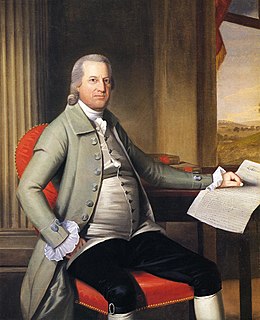 W
WOliver Wolcott Sr. was an American politician. He was a signer of the United States Declaration of Independence and also of the Articles of Confederation as a representative of Connecticut and the nineteenth Governor of Connecticut. He was a major general for the Connecticut Militia in the Revolutionary War serving under George Washington.
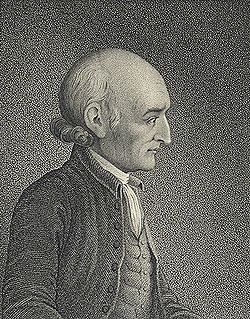 W
WGeorge Wythe was the first American law professor, a noted classics scholar, and a Virginia judge. The first of the seven Virginia signatories of the United States Declaration of Independence, Wythe served as one of Virginia's representatives to the Continental Congress and the Philadelphia Convention. Wythe taught and was a mentor to Thomas Jefferson, John Marshall, Henry Clay and other men who became American leaders.